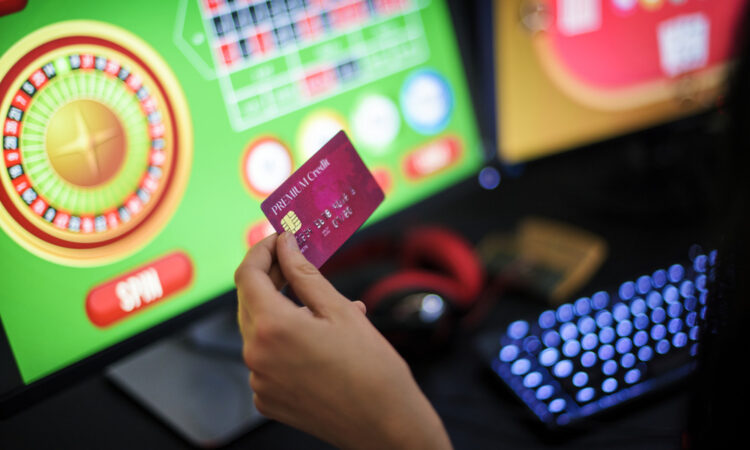When engaging with online casinos, it is important to understand the fees associated with various payment methods, as they can affect your overall gaming experience.
Different payment options such as credit cards, e-wallets, or bank transfers come with their own fee structures, which can reduce your winnings if not carefully considered.
Additionally, factors such as currency conversion fees and transaction limits may also influence the net amount you receive.
By identifying these potential costs, you can make informed financial decisions and potentially retain more of your winnings.
It is advisable to review the terms and conditions of each payment method to understand any associated fees and choose the one that best aligns with your financial preferences.
Key Takeaways
- Deposit and withdrawal fees vary by casino and payment method, impacting net winnings.
- E-wallets often feature lower transaction fees compared to credit cards and bank transfers.
- Currency conversion costs can be minimized by choosing casinos supporting local currencies.
- Transaction limits influence how much can be deposited or withdrawn at once.
- Cryptocurrency payments generally incur lower fees and offer faster processing times.
Deposit Fees
When engaging with online casinos, understanding deposit fees is essential for effective budget management. Various casinos and payment methods impose different fees for depositing funds. Being aware of these fees beforehand is important as they impact the amount available for gaming.
Firstly, evaluate your preferred payment method. Options like credit cards, e-wallets, and bank transfers have distinct fee structures. Credit card deposits may involve a percentage-based fee, while bank transfers often come with a fixed fee. E-wallets such as PayPal or Skrill typically have lower fees, making them a favorable choice for many users.
Additionally, it’s important to determine if the casino imposes any extra charges for deposits. While some online casinos cover transaction costs, others might transfer these costs to players, resulting in additional charges on deposits.
Before proceeding with a deposit, it’s advisable to review the terms and conditions on the casino’s payment page. This will help identify any hidden costs and aid in selecting the most cost-effective method.
Staying informed ensures optimal use of funds and contributes to a better gaming experience. Regularly reviewing and adjusting your deposit strategy is recommended to align with any changes in fee structures.
Withdrawal Charges
When engaging with online casinos, understanding withdrawal charges is an important aspect that can impact your net winnings. Being informed about these fees helps in managing expectations during the cash-out process.
It’s crucial to note that each casino may have distinct rules concerning withdrawals, and these may differ based on the chosen payment method.
Firstly, it’s advisable to verify whether the payment method you intend to use incurs a withdrawal fee. Some e-wallets and bank transfers may impose either a flat fee or a percentage of the withdrawal amount. Reviewing these specifics prior to making a decision is essential to prevent unexpected deductions from your winnings.
In addition to payment method fees, it’s important to consider the casino’s withdrawal policies. Certain casinos may apply their own fees for processing withdrawals.
Awareness of any minimum withdrawal amounts is also necessary, as not meeting these thresholds might result in additional charges. Thoroughly reading the terms and conditions can help avoid unforeseen expenses and provide a clear understanding of the withdrawal process.
Currency Conversion Costs
Currency conversion costs can significantly affect your overall payout when engaging with online casinos. Understanding these costs is important for managing your finances effectively. When transactions involve depositing or withdrawing in a currency different from the one used by the casino, conversion fees are incurred. Typically, these fees are a percentage of the transaction amount, and they can accumulate quickly, especially with substantial transactions.
To mitigate these costs, it’s advisable to review the currency options offered by the casino you’re considering. Preferably, choose a casino that supports your local currency to avoid the need for currency conversion and the associated fees.
Additionally, consider using e-wallets or payment services known for offering more competitive conversion rates compared to traditional banks.
Monitoring exchange rates is also prudent, as they fluctuate daily. Timing your transactions to coincide with favorable exchange rates can help lessen the impact of conversion costs.
Furthermore, it’s important to examine the casino’s terms and conditions for any mention of currency conversion fees, as these may be outlined within the fine print.
Transaction Limits
Navigating transaction limits is an important aspect of managing funds when engaging with online casinos. These limits, which can vary based on the casino and payment method, influence how players can deposit and withdraw money. Minimum and maximum transaction limits are commonly set by casinos, and having awareness of these limits aids in planning deposits and withdrawals, maintaining budget control, and avoiding unforeseen issues.
Understanding transaction limits requires consideration of both the casino’s policies and the conditions set by your payment provider. For example, e-wallets may provide higher limits compared to credit or debit cards, but they may also have specific restrictions. It’s advisable to review the terms associated with the chosen payment method to prevent any complications.
Additionally, some casinos might enforce stricter limits contingent upon the player’s account status or the level of completed verification. Therefore, verifying your account promptly can potentially grant access to higher transaction limits. This step can facilitate smoother transactions and reduce the likelihood of delays.
If there’s any uncertainty regarding a limit, reaching out to the casino’s customer service for clarification is recommended. Staying informed about transaction limits is key to maintaining effective management of gaming finances.
Credit Card Processing Fees
When conducting online casino transactions with credit cards, it’s important to be aware of potential processing fees. These fees can vary based on your card issuer and the policies of the online casino. Generally, credit card processing fees are between 1% and 3% of the transaction amount.
Although these fees might seem minimal initially, they can accumulate if you engage in frequent transactions.
Additionally, consider the possibility of foreign transaction fees. If the online casino operates from a different country, your credit card provider may impose an extra fee, typically ranging from 1% to 3% of the transaction value. Over time, these costs can also add up.
To avoid unexpected charges, it’s advisable to review the terms and conditions associated with both your credit card and the online casino. Some casinos might cover part of the fee, while others may transfer the entire cost to you.
Contacting your credit card company can provide clarity on the precise fees applicable to your transactions.
Being informed about these fees can aid in making more prudent financial decisions and may encourage consideration of alternative payment methods that offer lower fees. Understanding these aspects ensures that you aren’t surprised by unforeseen charges.
E-Wallet Service Charges
E-wallets are increasingly utilized for online casino transactions due to their convenience and often reduced fees compared to traditional payment methods. An e-wallet functions as a digital wallet, enabling users to deposit and withdraw funds efficiently and securely.
However, it’s important to recognize that e-wallets incur specific service charges. Generally, e-wallets impose a small fee for transactions, typically lower than those associated with credit cards. Deposit fees are usually minimal, often constituting a percentage of the transaction amount.
Withdrawal fees, however, can vary based on the e-wallet provider and the casino’s policies. While some casinos may cover these costs, others might transfer them to users, making it essential to review the terms carefully.
Currency conversion fees are another aspect to consider. If the online casino operates in a different currency than the one associated with your e-wallet, additional charges may apply. Monitoring these fees is important, as they can accumulate over time.
Bank Transfer Expenses
Bank transfers continue to be a widely utilized method for online casino transactions, largely due to their perceived security and direct nature. However, it’s important to recognize the associated fees with this payment method.
These fees can vary based on your bank’s policies and the geographical location of the casino. Generally, banks may impose a fixed fee or a percentage of the transaction amount, which can become significant, particularly with large deposits or frequent withdrawals.
In the case of international transactions, your bank might levy an additional fee to cover currency conversion and the complexities of cross-border transactions. Furthermore, some casinos may apply their own processing fees for handling bank transfers, which can increase your total costs.
To use bank transfers effectively, it’s essential to review both your bank’s and the casino’s fee structures. Contact your bank for detailed information on potential charges, and examine the casino’s terms and conditions carefully.
Cryptocurrency Payment Fees
Cryptocurrency presents a contemporary option for casino payments, often noted for its potentially lower fees and enhanced privacy compared to traditional methods. Digital currencies like Bitcoin, Ethereum, and Litecoin typically incur lower transaction fees due to the absence of intermediaries such as banks, which reduces the expenses associated with payment processing.
Nevertheless, it’s crucial to be mindful of network fees—costs associated with processing transactions on the blockchain. These fees can vary depending on network demand. During periods of high activity, fees may rise, impacting the total transaction cost. It’s advisable to verify the current network fees before proceeding with a transaction to manage expenses effectively.
Additionally, exchange fees are an important consideration. When converting cryptocurrency to fiat money or vice versa, exchanges typically charge a percentage of the transaction as a fee. These fees can differ among platforms, so comparing rates is recommended to ensure cost-effectiveness.
Despite these potential expenses, cryptocurrencies offer benefits such as faster transactions and improved privacy. Understanding these fees enables informed decision-making, thereby optimizing the value derived from casino payments.
You can read our article The Pros and Cons of Using Multiple Payment Methods.
Frequently Asked Questions
Are There Any Hidden Fees in Casino Loyalty Programs or Bonus Offers?
You might find hidden fees in casino loyalty programs or bonus offers. Always read the terms and conditions carefully. They often include wagering requirements or withdrawal restrictions that could impact your winnings or rewards, so stay informed.
How Do Exchange Rate Fluctuations Affect My Casino Account Balance?
Exchange rate fluctuations can impact your casino account balance significantly. If the currency you’re using weakens, you’ll get less value when depositing or withdrawing. Staying informed about currency trends helps you make smarter financial decisions in casinos.
Can I Incur Fees When Canceling a Casino Transaction?
Yes, you can incur fees when canceling a casino transaction. Check the casino’s terms and conditions, as fees vary. Always verify with customer support before canceling to understand any charges that might apply.
Are There Fees for Using Casino Mobile Payment Apps?
Yes, you might incur fees when using casino mobile payment apps. These fees can vary based on the app and transaction type. Always check the app’s terms to understand potential charges before proceeding with your payment.
Do Casinos Charge Fees for Account Inactivity?
Yes, some casinos do charge fees for account inactivity. You should always check the casino’s terms and conditions to avoid any surprises. It’s best to keep your account active by logging in periodically.
Conclusion
To manage your casino finances effectively, it’s essential to stay informed about the various fees tied to payment methods. By understanding deposit and withdrawal charges, currency conversion costs, and transaction limits, you can make smarter choices. Pay attention to credit card processing fees, e-wallet service charges, bank transfer expenses, and cryptocurrency payment fees. Reviewing terms and conditions helps you avoid surprises, ensuring you maximize your net winnings and enjoy a more cost-effective gaming experience.

